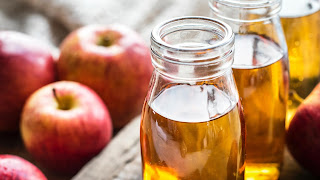The Health Benefits of Folic Acid
Folic acid is the synthetic supplement form of Folate, one of the B vitamins, which is needed for body function. Folate is especially important to pregnant women, yet folate presents many health benefits to both men and women. Folate is not produced by the body, so it is necessary that we obtain adequate amounts from the foods that we consume or through supplements.
Folate plays an important role in cell maintenance and production. In terms of pregnancy, a growing fetus is constantly requiring the production of new cells. Pregnant and nursing women are recommended to consume 800 micrograms of folic acid per day.
Folate plays a vital role in the body’s ability to produce both white and red blood cells. Scientific research has linked folate to helping to reduce the risk of anemia. Anemia is a condition that occurs when the body lacks the ability to get an adequate amount of oxygen to the organs. Red blood cell health is important as red blood cells carry oxygen.
There is a link between folate and a potential reduction in depression. Studies conclude that up to 35% of people suffering from depression have low folic acid levels. Some research has determined that folic acid can aid antidepressant medications in their effectiveness. Folic acid can also assist in the prevention of Alzheimer’s disease and dementia. Research shows up to a 55% decrease in the risk of developing Alzheimer’s.
Folic acid also assists the body in eliminating an amino acid in the blood called homocysteine, which is a byproduct of animal protein synthesis and breakdown. Elevated homocysteine levels are linked to an increased risk of heart attack.
Folate is equally important for men, as it can help with infertility and low sperm count. Folic acid helps to increase both sperm count and quality. Folic acid deficiency can also cause damage to the DNA that's carried by the sperm. This damage to the DNA can lead to chromosomal damage in the fetus.
Foods that are rich in folate include dark leafy vegetables, broccoli, peanuts, avocado, citrus fruits, rice and sunflower seeds. Current USDA recommendations for non-pregnant and nursing women is 400 mcg per day and due to the current American diet trend of consuming primarily animal products, most people in the US do not come close to this recommendation. This being the case, consider including some of the foods mentioned above or taking a quality multi-vitamin on a daily basis.
Always speak with your trusted healthcare provider before adding any vitamins or supplements into your diet.
In Wellness and Love,
Dr. Chris
Always speak with your trusted healthcare provider before adding any vitamins or supplements into your diet.
In Wellness and Love,
Dr. Chris
References:
Folic acid deficiencies are wide spread: here’s why nearly everyone needs more folate. Black, Alexis. www.naturalnews.com/z016208_prenatal_nutrition_folic_acid.html
What Does Folic Acid Do For Men? www.livestrong.com/article/468798-what-does-folic-acid-do-for-me/
Folic Acid for Men. Nicks, J. www.buzzle.com/articles/folic-acid-for-men.html




Comments
Post a Comment